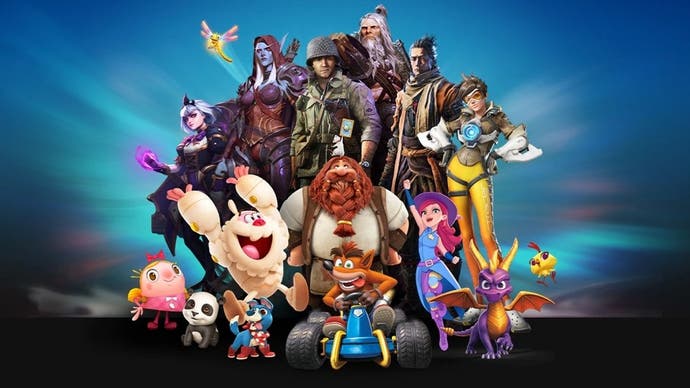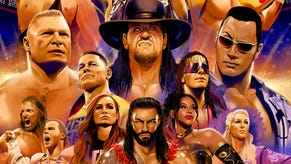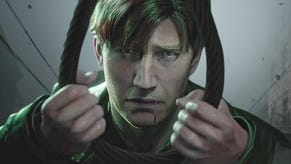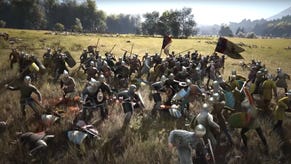Microsoft has finally bought Activision Blizzard
It's done.
Microsoft has now formally acquired Call of Duty maker Activision Blizzard for $68.7bn - the biggest company buyout in video games industry history.
Today's long-awaited deal closure finalises a process that has dragged on through almost two years of regulatory approvals and legal wrangling. Finally, however, it is done - hours after the UK ultimately gave the deal a green light.
Microsoft now owns Activision, including the world's biggest first-person shooter franchise Call of Duty, alongside the rights to Spyro, Skylanders, and Guitar Hero.
Microsoft also now owns Blizzard, home to World of Warcraft and the maker of the Diablo series, plus Overwatch, StarCraft and Hearthstone.
And perhaps most importantly for Microsoft - and most lucratively - it now owns Activision Blizzard's giant mobile division King. Its mobile game smash hit Candy Crush Saga has raked in more than $20bn alone, and Microsoft has said its mobile expertise will be key to growing Xbox's audience over the next decade.
For Activision Blizzard staff - all 17,000 of them worldwide - the acquisition marks a new chapter in the company's history. But, for now at least, the firm remains headed by controversial boss Bobby Kotick, who has repeatedly come under fire as Activision Blizzard struggled to reckon with a wave of harassment and misconduct allegations over the past couple of years. Kotick's long-term future at the company remains uncertain today, with his tenure seemingly now guaranteed only through the end of this year.
"As one team, we'll learn, innovate, and continue to deliver on our promise to bring the joy and community of gaming to more people," Xbox boss Phil Spencer said today in a blog post on the buyout. "We'll do this in a culture that strives to empower everyone to do their best work, where all people are welcome, and is centered on our ongoing commitment of Gaming for Everyone. We are intentional about inclusion in everything we do at Xbox - from our team to the products we make and the stories we tell, to the way our players interact and engage as a wider gaming community."
As expected, the deal's completion has not prompted an immediate wave of Activision Blizzard games appearing on Xbox Game Pass. Activision itself previously cautioned that this would take time, with newer titles not expected to appear until 2024.
"Today we start the work to bring beloved Activision, Blizzard, and King franchises to Game Pass and other platforms," Spencer said today. "We'll share more about when you can expect to play in the coming months. We know you’re excited – and we are too.
"For the millions of fans who love Activision, Blizzard, and King games, we want you to know that today is a good day to play. You are the heart and soul of these franchises, and we are honoured to have you as part of our community. Whether you play on Xbox, PlayStation, Nintendo, PC or mobile, you are welcome here - and will remain welcome, even if Xbox isn't where you play your favorite franchise. Because when everyone plays, we all win. We believe our news today will unlock a world of possibilities for more ways to play."
Microsoft first signalled its intent to acquire Activision Blizzard in January 2022, for the enormous sum of $68.7bn. This figure dwarfs that of any other video games industry buyout - the closest being Grand Theft Auto publisher Take-Two's 2022 acquisition of mobile giant Zynga for $12.7bn.
It's the latest - and by far the biggest - in a string of acquisitions for Microsoft, after it bought Bethesda parent company ZeniMax for $8.1bn in 2020. This followed a flurry of buyouts through 2018 and 2019 that saw Microsoft snaffle up Ninja Theory, Undead labs, Compulsion Games, Playground Games, InXile Entertainment, Obsidian and Double Fine.
Microsoft has spent billions on bolstering its first-party video game output - far more than PlayStation - over recent years, as part of a growing trend of consolidation across the industry. And Sony has also been a part of this, buying up Bungie in 2022 for $3.7bn.
With the deal done, many questions still remain over how Microsoft will make the most of its new $68.7bn purchase over the coming years. What Activision Blizzard games will become Xbox exclusive? What Microsoft franchises might Activision now get to dabble in? And how will Xbox use King to grow its mobile presence? Activision Blizzard may now be part of Microsoft, but exactly how it will look and work in the years to come very much remains to be seen.
There's also still the issue of the ongoing interest in the deal by the US Federal Trade Commission, which was unable to block the deal's progress but still intends to investigate it further.
"Recent document filings suggest the FTC means to continue its examination/challenge of the deal, but unlike other jurisdictions like the EU and UK, the US regulatory agencies do not get a veto," video games industry lawyer Richard Hoeg, host of the Virtual Legality podcast, told Eurogamer today. "Their approval is not strictly required. Since the FTC lost its attempt to use the US courts to stop the deal, Microsoft evidently determined that the risk of the FTC being able to later unwind the deal was minimal enough to accept. I tend to agree."










